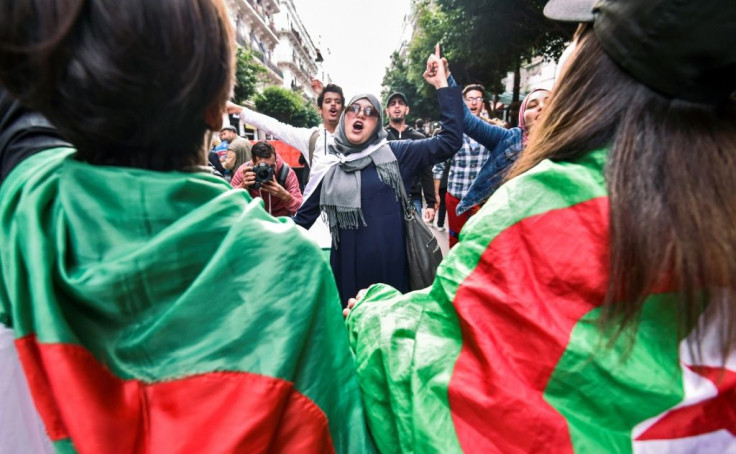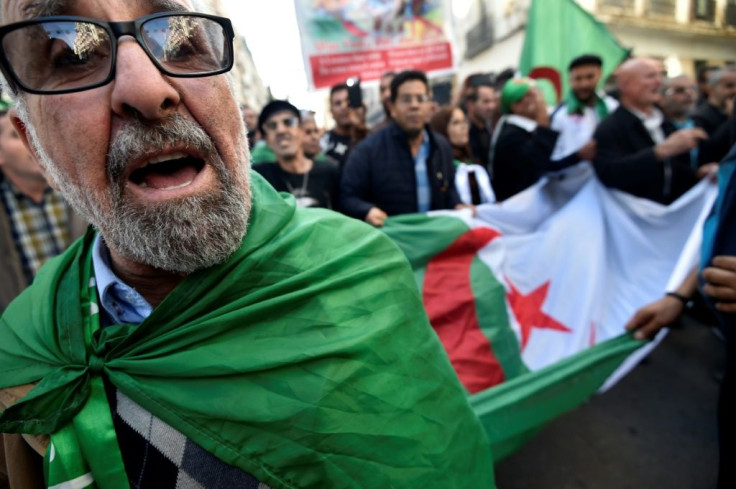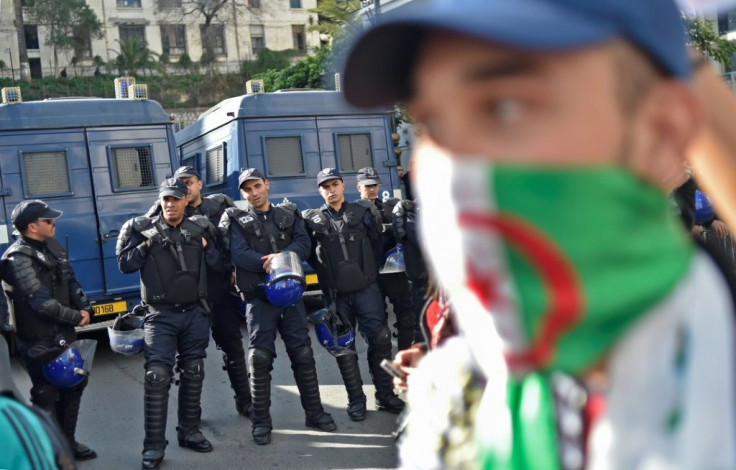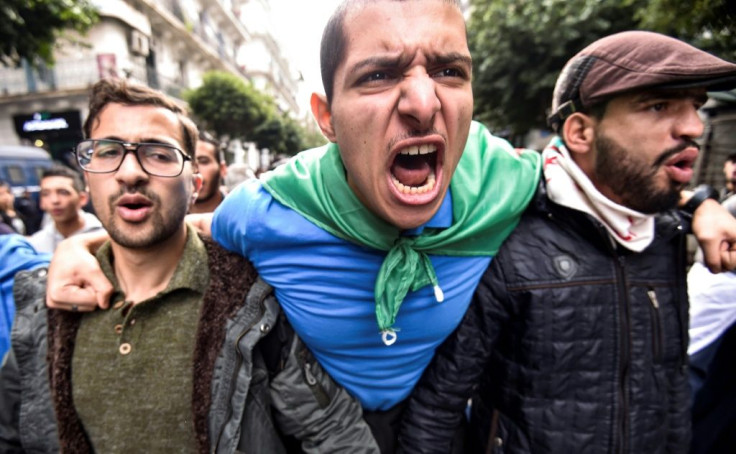Huge Protest Days Ahead Of Contentious Algeria Vote

A vast crowd rallied in Algiers on the final Friday before a contentious presidential election many see as an elite attempt to cling to power despite months of protests, an AFP journalist said.
"No to voting, we swear we will not stop!" protesters chanted. "No retreat!"
The poll set for next Thursday will see five candidates, all linked to ex-president Abdelaziz Bouteflika, compete for his job.
Two of the approved runners even served as prime ministers during the ex-strongman's two-decade tenure, which ended in April with his resignation in the face of huge protests.
Protesters, who fear Bouteflika allies will use the vote to usher in a successor from their own ranks, say no vote should take place until after sweeping reforms in the North African country.
In the absence of an official tally, it was impossible to estimate the size of Friday's mobilisation.
But it appeared to be the biggest rally since November 1, when citizens took to the streets and demanded a second "liberation" on the 65th anniversary of the start of the war for independence from France.
Marches took place across the country, including in the major cities of Oran and Constantine, local journalists reported.

Checkpoints outside the capital were only letting in vehicles registered in Algiers, an AFP correspondent reported on Friday morning.
Busloads of plain-clothed and anti-riot police were deployed to the city centre, equipped with water cannons.
Protesters on Friday shouted their support for a general strike set for Sunday and demanded civilian -- rather than "military" -- rule.
Since Bouteflika stepped down, army chief Ahmed Gaid Salah has emerged as the country's de facto ruler.
A firm and consistent proponent of elections, the army chief on Tuesday called for a massive turnout in the poll, slamming what he dubbed detractors' "plotting against the fatherland".

In an address carried by public and private TV stations on Friday, he said the vote would be an "important deadline" and "an electoral party".
But protesters in the streets of Algiers shouted a sharp rebuke: "Gaid Salah, forget the vote!"

Authorities have downplayed the level of opposition to the poll.
"Marches in support of the presidential vote are larger than those against it," the head of Algeria's election authority, Mohamed Charfi, insisted during an interview with Saudi-owned news channel Al-Hadath.
According to Amnesty International, Algerian authorities have "escalated their pre-election crackdown on protests" in recent weeks, "carrying out waves of arbitrary arrests".
Interior Minister Salah Eddine Dahmoune sparked outrage earlier in the week when he called opponents of the vote "traitors, mercenaries, homosexuals".
"If, as the minister says, those who march are homosexuals, then I'm going to the Gay Pride parade to say no to voting for people who endorsed corrupt (leaders)," said Aicha, a retired civil servant.
Friday marks the 42nd consecutive week the "Hirak" protest movement has organised marches across the country.
"I am not against voting, I am against this election because it is only serving to recycle Bouteflika figures," said Fatiha Bendahmane.
Former prime ministers Ali Benflis, 75, and Abdelmadjid Tebboune, 73, are considered the frontrunners in the presidential vote.
Three other figures who either participated in Bouteflika-era governments or supported the former strongman have also been cleared to run.
"We will have a new name but the same policies that destroyed the economy of this country," said Bendamane, a 55-year-old teacher preparing to demonstrate in Algiers.
"I will march today to say no to voting with this regime."
Despite demonstrators' clear disdain, the five candidates approved by electoral authorities have all sought to portray themselves as close to the protest movement.
In a televised debate on Friday -- the first such broadcast event in Algeria's history -- the five faced 13 questions, mainly on the political, economic and social situation in the country.
The Munathara Initiative, an NGO in neighbouring Tunisia which promotes open debate in the Arab world, said the debate "did not meet international standards of transparency and independence".
No opinion polls have been published that indicate the likely turnout.
But in previous elections, abstention has been viewed as the only way to challenge an entrenched system that has long produced presidents chosen by the army and confirmed in fraudulent elections.
Amine Soulime, a 60-year-old lawyer who did not protest on Friday, said that come election day he would be "putting an empty envelope in the ballot box".
"No candidate satisfies me but voting is a right and a duty," he said.
© Copyright AFP 2024. All rights reserved.




















